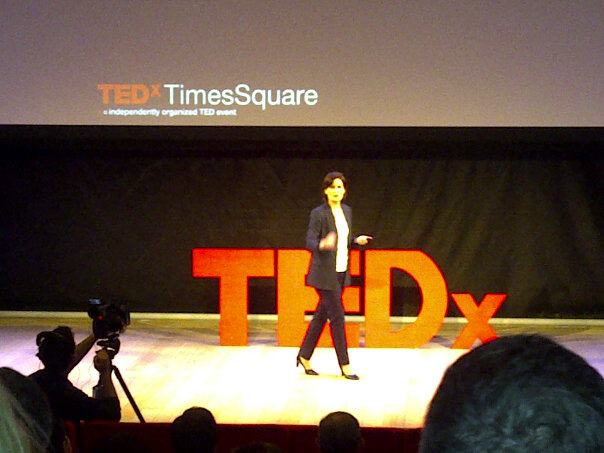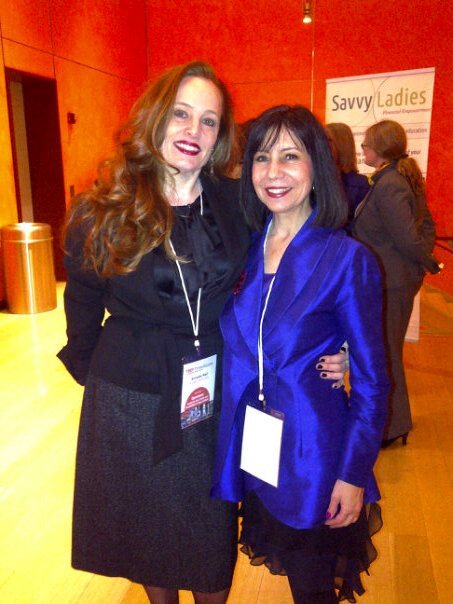 Yesterday, I attended TEDxTimesSquare, which is an independently organized TED event in New York City. The theme was Openness: Exploring the Limits and Possibilities of Open Culture. TED stands for Technology, Education, and Design, and is a forum for public speakers to share ideas worth spreading.
Yesterday, I attended TEDxTimesSquare, which is an independently organized TED event in New York City. The theme was Openness: Exploring the Limits and Possibilities of Open Culture. TED stands for Technology, Education, and Design, and is a forum for public speakers to share ideas worth spreading.
It's a wonderful platform for professional speakers to gain exposure and for the audience to experience a wide range of speaking styles and fascinating topics.
One of the best presenters was Karol Ward whose presentation was called, "Claim Your Inner Voice". She was the epitome of professional speaking. From the message, to the timing, to her movement, to her story, to her slides - they all worked together to create one seamless message about the mind-body connection.
Another fabulous presenter was Mark Taylor who spoke about "The Enemy of Openness". He shared that the secret to conflict management is triads. With two people, one is right and the other is wrong. With three people, it's easier to accept feedback. Now I know why my mastermind group of three people works so well.
Amy Goldsmith's talk was titled, "Yours, Mine and Ours? Legal Limits of Openness." She shared some fascinating information about intellectual property. We think of intellectual property as literary or musical. But did you know that you don't own your own blood? Once someone draws your blood, it's considered waste material and a researcher can obtain a patent for use of your DNA or cells.

It's not enough to have good presenters. For an event to be successful, it has to be well-organized. TEDxTimesSquare ran smoothly due in large part to event planner Annette Naif.
Other people in the program included:
- Jim Estill - From Zero to $2 Billion Through Openness
- Tim Piper - Why Goodness is Good for Brands
- Christopher Bishop - Open Technology for 430,000 Employees
- Kitty Pilgrim - International Openness
- Guy Geier - Open Architecture
- Collin McCloughlin - Chasing Dreams
- Andy Cohen - Magical Assumptions Behind Openness
- Greg Harper - The Future Through Open Technologies
- Aliza Licht - The Power of Being Real
- Peter Shankman - Nice Finishes First

 Last night I was a guest speaker for ABWA. My presentation was Speak Powerfully Sell More: Speak Your Way to More Business.
One woman in the audience asked a question about how to handle a celebrity who is hired to speak and doesn't deliver. This woman went on a rant about how many of these celebrities are not good speakers and yet meeting planners continue to hire them. I explained that the reason for that was event planners want to sell tickets. An event will sell out when the keynote speaker is a celebrity.
Last night I was a guest speaker for ABWA. My presentation was Speak Powerfully Sell More: Speak Your Way to More Business.
One woman in the audience asked a question about how to handle a celebrity who is hired to speak and doesn't deliver. This woman went on a rant about how many of these celebrities are not good speakers and yet meeting planners continue to hire them. I explained that the reason for that was event planners want to sell tickets. An event will sell out when the keynote speaker is a celebrity.